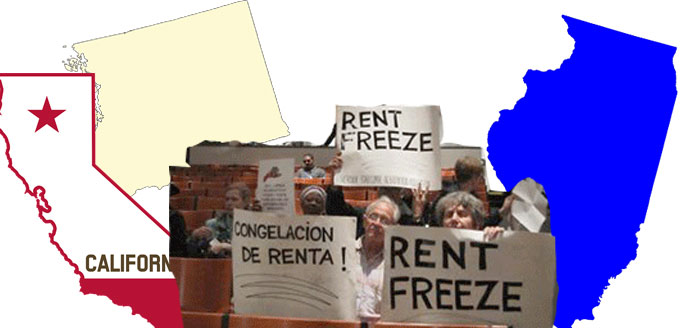
Rent control, long the scourge of New York City landlords, is becoming more popular across the country.
Lawmakers and tenant advocates in California, Illinois and Washington state are looking to repeal laws banning cities from imposing rent control or limits to regulate rent increases, the Wall Street Journal reported.
California is poised to be the largest battleground this year. Advocates have gathered 100,000 of the roughly 365,000 signatures required to put a measure on the ballot in November to repeal a 20-year-old law that put statewide limits on rent control.
If the law is repealed, cities would be able to put rent control on apartments built after 1995 and on single-family rentals, a point that’s become more contentious as Wall Street firms bought up single-family homes during the recession. Earlier this year, an effort to repeal the Costa-Hawkins Act, which prevents cities from capping rent on new construction, failed. It was a big victory for landlords.
Elena Popp, founder of the Los Angeles-based Eviction Defense Network, said expanding rent control is the best way to protect affordability.
“We cannot build our way out of a crisis of this proportion,” she said.
But Tom Bannon, president of the California Apartment Association, took the opposite view, though he acknowledged it’s an unpopular one in the Golden State.
“I think at the very heart of this is you have to build and you have to build fast,” he said.
In Washington state, lawmakers in the house and senate have put forward proposed legislation that would remove the state’s 1981 band forbidding local jurisdictions from implementing rent control. The bills are expected to come under serious consideration for a vote next year.
And in Illinois, lawmakers have proposed legislation lifting the state’s 1997 ban on rent control. Some Chicago voters will be able to vote in March on a nonbinding ballot question regarding whether or not to lift the ban.
Here in New York City, the Rent Guidelines Board last year approved a 1 percent increase on rent-stabilized leases following a two-year freeze. [WSJ] – Rich Bockmann
